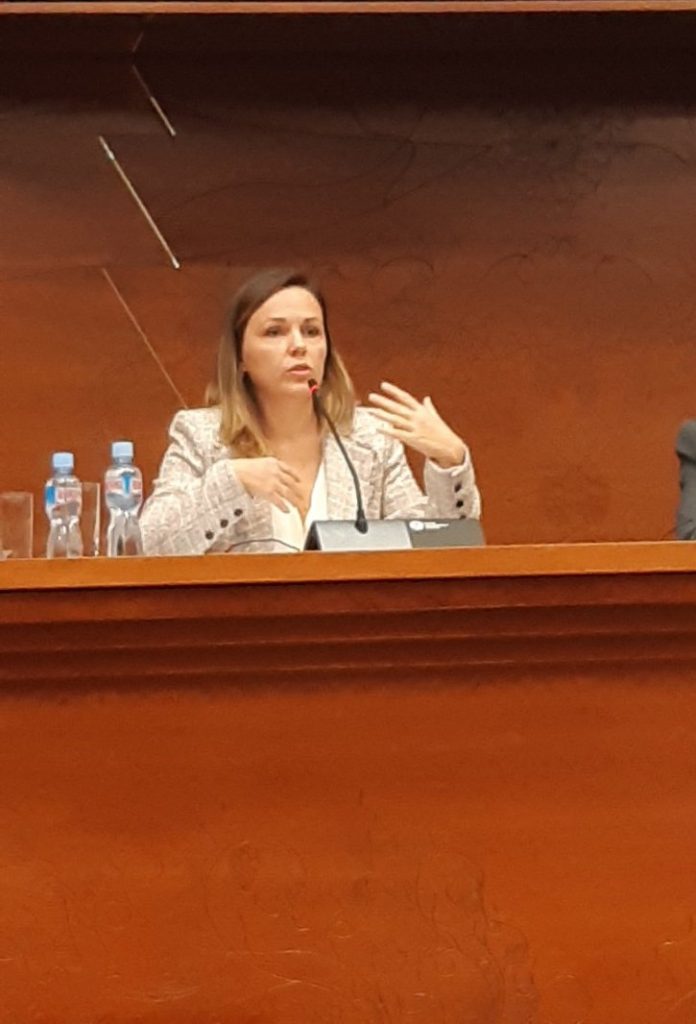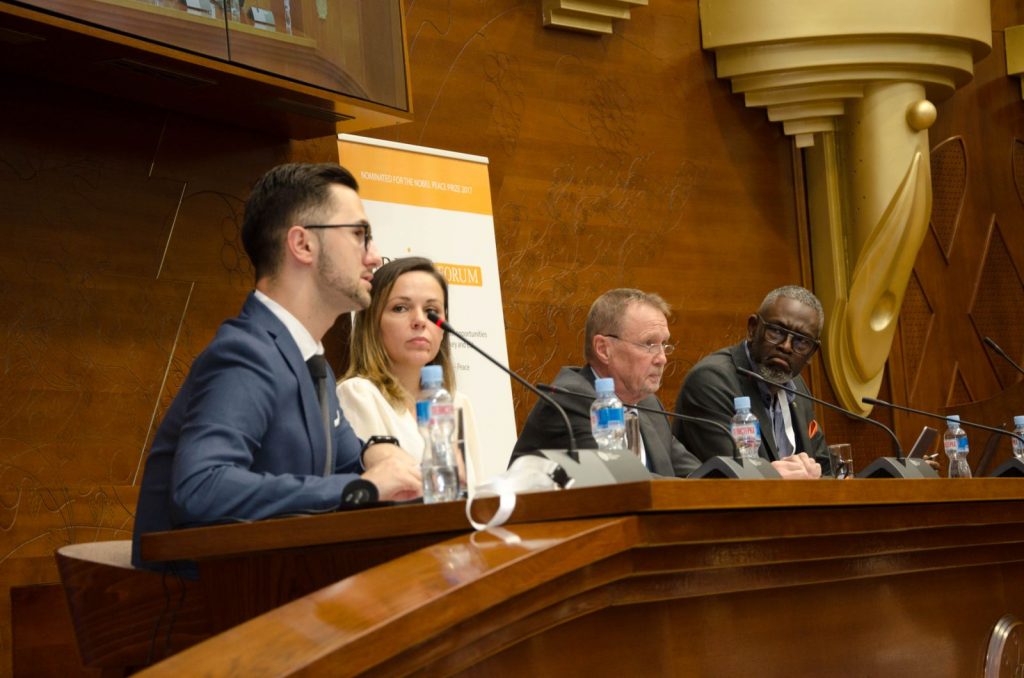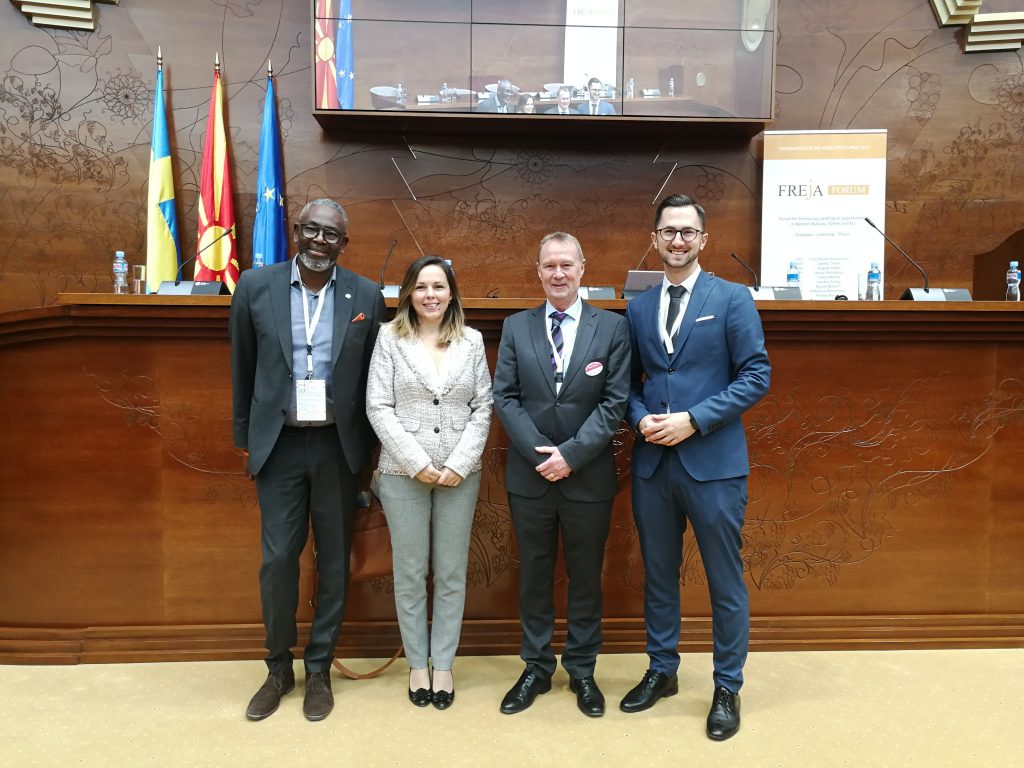Biljana Markovic Stamenova has given an overview of the current state of the CSOs, best practices and future trends. In conclusion, the CSOs are becoming increasingly redundant with the advance of technology. Social innovation activism, digital engagement, bottom-up social innovations, and social enterprises are the future of citizen activism. The event was organized by the Freja Forum and took place at the Parliament of the Republic of Macedonia.
Below are some excerps from the speech:
“I have more than 10 years of background in the NGO sector, developing one of the most recognizable NGOs in Macedonia and the region with significant impact on the Macedonian society. Some of the social impact programs that I have implemented include leadership development, talent support, startup assistance, export development, etc. Today I will address the current state of civic organization and the future trends.
As far as the current state is concerned, CSOs become obsolete and increasingly redundant with the advance of technology. Some of the arising activities include:
- Volunteering: People can now organize and gather support for ad hoc targeted causes and needs at great speed and without interacting with CSOs
- Donating: Decrease of membership and revenue – through social media individuals can directly connect with the public
- Activism: Decline of citizen engagement with CSOs because of on-line and ad-hoc activism
Based on a recent survey on the future of CSOs – new technologies (digitalization, models for fundraising, social networks, crowdfunding, personalized campaign social networks) is a key most important factor that will influence the way CSOs operate.
These bring some benefits for CSOs:
- New sources of funding – direct donors and crowdfunding: Direct connection with donors, who can “see” the impact of their money directly
- Improve the functioning internal management perspective and streamline processes
- The learning process can be greatly improved by e-learning and knowledge sharing
Projections:
- Through increasing access to the internet, social media, and mobile phone technology, the power of the individual as a virtual citizen is on the rise.
- CSOs who have worked as intermediaries will no longer be needed
- To sustain growth, CSOs will need to adopt new technologies and to better communicate with donors, increase transparency; potentials for advocacy, fundraising, members and user recruitment emerged
- Small organizations will cease to exist – exclusive dependence on grants, grants usually do not allow for the generation of internal surpluses that can finance growth and most donors prefer funding projects and programs rather than core costs, new ideas and no scale.
- Donor funding is redirected towards social enterprises, new types of organizations which may earn profit but are focused on their social goal, and can scale up the ideas to global usage
FUTURE: Civic and social innovation activism: digital engagement and democracy, bottom-up social innovations, entrepreneurship
- Social innovations
- Social enterprises
- Social impact investing
Social innovation:
- New entrepreneurial dynamics of civic initiatives that pursue social aims:
- childcare, elderly care, care for the disabled and so on
- ‘work integration’ or ‘work insertion’ of unemployed or disadvantaged and marginalized groups into the labor market
- Social innovation – solving a problem and energizing the community and the private sector to stand behind you
- Civil society can use e-learning, e-government, and e-health for new development projects
- social innovators, who are primarily focused on social issue
- Local problems (in finance, energy, health, education, culture) will be solved thanks to local innovation and social entrepreneurship, facilitated by digital tools and technologies.
- Funding available to support organizations that deliver social innovation to real/identified development needs
AREAS of impact:
- Education and learning – children’s early education, lifelong learning and re-qualification
- Gender equality in digital era – inlock the power of girls and women
- Health services
- Agriculture
- Finance
- Energy
- Media
Positive change:
Upgrade of service delivery CSOs should increase social innovations and upgrade their existing services. They should re-invent their mission, mission that is focused on prevention, not just the alleviation of problems, acting as an enabler of people and communities, rather than treating them as passive
recipients of charity.
Digitalization has an important role to play in a wide range of areas (e.g. gender, good governance, transparency and accountability, the fight against corruption, job creation and private sector development, access to micro-finance, education and health).”






